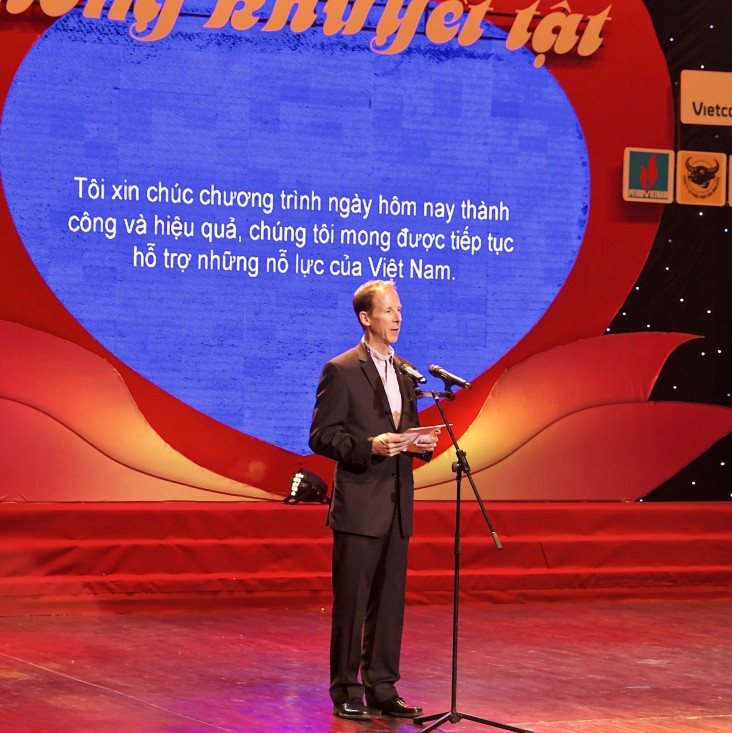
HANOi, April 18, 2015 -- It is an honor to join you this afternoon on National Disability Day. This year Vietnam and the United States celebrate the 20th anniversary of the normalization of diplomatic relations between our two countries. During that period our governments have partnered for significant achievements in areas of economic growth and trade, health, education, and support to vulnerable populations including persons with disabilities.
I am pleased that Ambassador Ted Osius will address you later in the program today via video. Thank you for the opportunity to preface his remarks with my own. This year’s National Disability Day is particularly important given Vietnam’s ratification of the UN Convention on the Rights of Persons with Disabilities. By doing so, Vietnam demonstrated strong commitment toward respecting human rights, embracing the value of diversity, and promoting equal opportunities for all its citizens.
Ratification and the adoption a few years ago of the Law on Disability are milestones that reflect the tremendous work by the Government of Vietnam, led by the Ministry of Labor, Invalids, and Social Affairs, and others to advance disability rights and establish services for persons with disabilities. The Vietnam Federation for Disabilities is one of those important partners, and the U.S. Government has been proud to contribute to VFD’s establishment and its ongoing efforts such as the Asia Pacific Disability Forum last fall.
Today’s theme of “the heart without disability” encourages us to acknowledge everyone’s unique and individual nature. Our focus should be directed at each person as a whole; considering their wishes, aspirations, and strengths without over-emphasis of a particular challenge such as mobility, vision, or hearing. Vietnamese with disabilities deserve respect for their determination, ideas, and goals.
It is important that we recognize that for a person with a disability to be successful their environment must be supportive. I am encouraged by those who work to ensure that persons with disabilities have the access and opportunity to grow and excel. These include disabled persons organizations, service providers, local and national governments, and NGOs. In particular, I am inspired to see among the audience many leading Vietnamese with disabilities. You are the pioneers in the field of policy advocacy, assistive technologies, and disability employment promotion.
Vietnam has made long strides in its efforts to bring better lives to persons with disabilities, and the US Government is proud to have been supporting Vietnam on this work. As early as 1989, and with the leadership of Senator Patrick Leahy and others, we began humanitarian programs for Vietnamese with disabilities.
Since then, we are proud partners with the Government and the people of Vietnam on a much broader and more ambitious agenda on the development of laws, policies, programs, and services for persons with disabilities. We work in partnership with a variety of organizations, including committed U.S.-based organizations like VNAH, to ensure equality, opportunity, access, and participation for all citizens of Vietnam.
Our aspirations for partnership on disabilities continue to grow. President Obama and President Sang reaffirmed our countries’ commitment to assist persons with disabilities under the Comprehensive Partnership they agreed to in 2013.
Visits like that in early May by the U.S. Government’s Special Advisor for International Disability Rights, Judith Heumann, help sustain our engagement on these vital issues. We admire the voices of persons with disabilities and hope that by joining them we can transform Vietnam into the inclusive society you desire.
I wish you a successful and productive program today and we look forward to continuing to support your efforts.







Comment
Make a general inquiry or suggest an improvement.